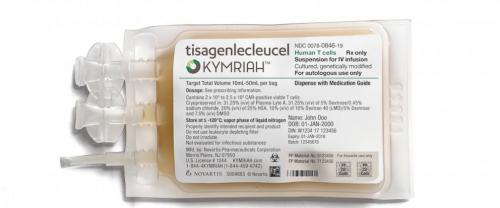The FDA on Wednesday opened a new era in cancer treatment, when it approved a landmark, futuristic new gene therapy-based approach to treat childhood leukemia, one which has produced unprecedented results in patients with the deadly cancer. Even the FDA called the approval “historic.”
“We’re entering a new frontier in medical innovation with the ability to reprogram a patient’s own cells to attack a deadly cancer,” said FDA Commissioner Scott Gottlieb.
The CAR-T cell treatment, developed by Novartis and the University of Pennsylvania, is the first type of gene therapy to hit the U.S. market, and one in a powerful but expensive wave of custom-made “living drugs” being tested against blood cancers and other tumors. The therapy is made by harvesting patients’ white blood cells and rewiring them to home in on tumors. Novartis’s product is the first CAR-T therapy to come before the FDA, leading a pack of novel treatments that promise to change the standard of care for certain aggressive blood cancers.
“This is a brand new way of treating cancer,” said Dr. Stephan Grupp of Children’s Hospital of Philadelphia quoted by the AP, who treated the first child with CAR-T cell therapy — a girl who’d been near death but now is cancer-free for five years and counting. “That’s enormously exciting.”
This first use of CAR-T therapy is aimed at patients ill with a common pediatric cancer — acute lymphoblastic leukemia, or ALL — that strikes more than 3,000 children and young adults in the U.S. each year. While most survive, about 15 percent relapse despite today’s best treatments, and their prognosis is bleak.
The therapy will be marketed as Kymriah.

The price tag: $475,000 for a course of treatment. While the amount sounds staggering to many patients, it was far less than many analysts had expected. Still, David Mitchell, president of advocacy group Patients For Affordable Drugs, met with Novartis yesterday to talk about “how to arrive at a fair price for its new CAR-T drug,” but said the meeting was “disappointing.”















No Comments